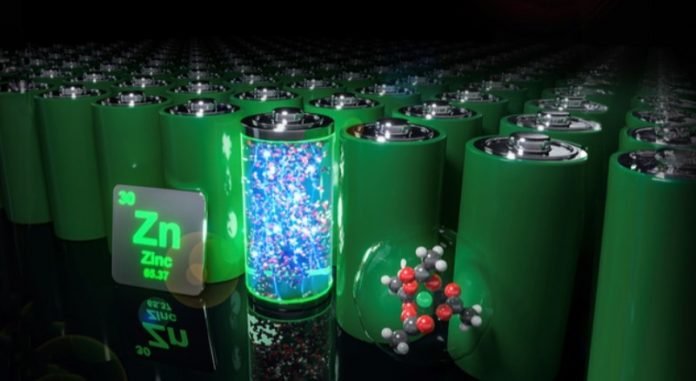
The world needs batteries that can store electricity from renewable sources like wind and solar power.
The most common type of battery used today is the lithium-ion battery, which is expensive and can be dangerous because it is flammable.
Scientists are now developing an alternative type of battery called a zinc battery.
Zinc is a cheap and abundant metal, and these batteries can store a lot of electricity.
One of the advantages of zinc batteries is that they don’t need flammable solvents like lithium-ion batteries do.
However, there are still some challenges that scientists need to overcome in order to make zinc batteries practical for everyday use.
One of the challenges is that when zinc batteries are charged at high voltages, they can produce hydrogen gas, which can cause the battery to lose electrolyte fluid and decrease performance.
Another challenge is the formation of spikey zinc deposits during charging, which can damage the battery and cause it to short-circuit.
Scientists have been trying to solve these problems by adding salts to the electrolyte fluid, but this can make the fluid thick and slow down the charging and discharging processes. In addition, many of the salts used are toxic and harmful to the environment.
A team of researchers led by Professor Maria Lukatskaya at ETH Zurich has found a way to make zinc batteries more powerful, safer, and environmentally friendly.
They discovered that the ideal salt concentration for the electrolyte fluid is not the highest possible, as was previously thought, but rather a relatively low concentration of five to ten water molecules per salt’s positive ion.
They also used environmentally friendly salts of acetic acid, called acetates, instead of toxic salts.
The researchers tested their new battery strategy in the laboratory and found that it prevented electrolyte depletion and zinc dendrite formation while enabling faster charging and discharging. However, they still need to optimize the cathode material in the battery to make it more durable and efficient.
Zinc batteries have the potential to be used as storage units in the power grid or in homes to store solar power produced during the day for use at night. But more work needs to be done to make them practical for everyday use.
In summary, scientists are working on developing an alternative to lithium-ion batteries called zinc batteries.
Zinc batteries are cheaper and safer than lithium-ion batteries, but they have some challenges to overcome, such as hydrogen gas production and zinc dendrite formation. Scientists have found a way to improve zinc batteries by using a low concentration of environmentally friendly salts and avoiding toxic salts.
However, more work needs to be done to optimize the cathode material in the battery to make it more durable and efficient.
Written by ETH Zurich.



